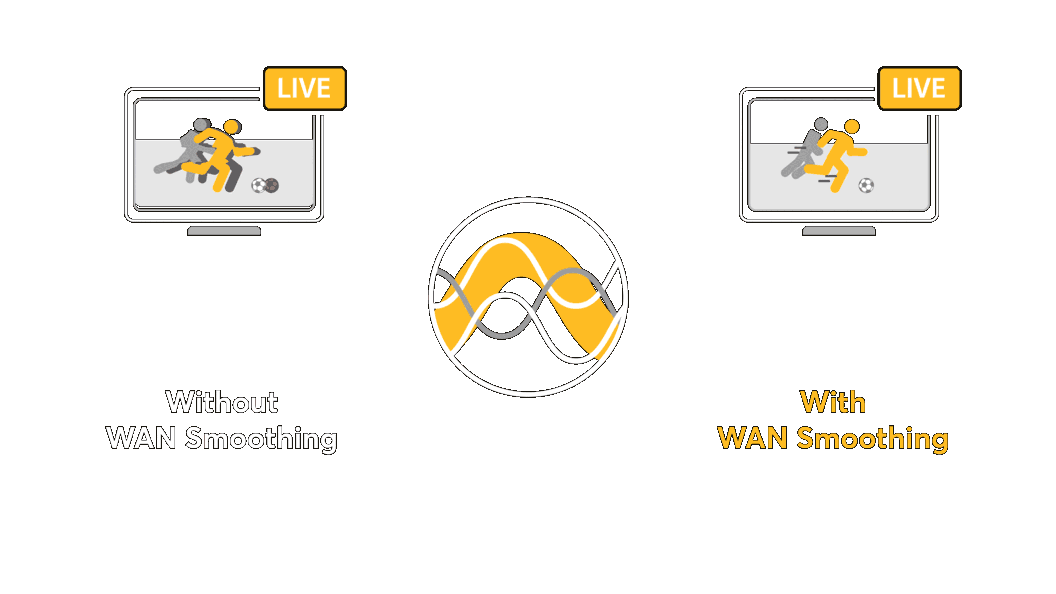In the past 12-months we’ve seen a huge shift in the satellite internet market worldwide.
Starlink and OneWeb is revolutionising the industry with unseen speeds, latency, and coverage. With also increasing coverage of 5G, and the termination of 3G systems worldwide, a shift in connectivity is happening.
But just because we get faster and lower latency connections does not mean unbreakable – That is where network bonding from companies like Peplink & Celerway makes a difference.
We’ve tested both products extensively and found solutions and reasons for behaviours and challenges with systems such as Starlink, 5G and High-Speed shore connections.

What is Network Bonding?
Network Bonding is a technology that allows businesses, vessels, and individuals the ability to combine multiple internet connections into a single, high-bandwidth connection. By aggregating the bandwidth of multiple connections, businesses can achieve faster and more reliable internet access, as well as greater redundancy and failover protection.
Peplink offers a range of products that support Network Bonding, including routers, modems, and other networking equipment. These products use algorithms to determine the best path for each packet of data, ensuring that the bonded connection is optimized for performance and reliability.
Network Bonding can be used with a variety of different types of internet connections, including broadband, cellular, satellite, Starlink, OneWeb, and Wi-Fi. This allows businesses and individuals to choose the best combination of connectivity options to meet their specific needs.
Network Bonding technology is particularly useful for businesses that rely on the internet for mission-critical applications, such as VoIP, video conferencing, and online transactions. It can also be useful for businesses in areas with poor internet connectivity, as it allows them to combine multiple low-bandwidth connections into a single, high-performance link.
Overall, Network Bonding is a powerful tool for businesses looking to improve their internet connectivity and reliability. By combining the bandwidth of multiple connections, businesses can achieve faster and more reliable access to the internet and the resources they need to succeed.
Network Bonding Enabled:

Network Bonding Disabled:

WAN Smoothing:

With WAN Smoothing we can rid of poor performance or short-disconnects.
This technology is useful when watching live sports, conference calls, or phone/video calls.
Why does it matter?
Network Bonding is an important technology because it allows businesses to achieve faster and more reliable internet access. By aggregating the bandwidth of multiple connections, businesses can get more out of their internet infrastructure and better meet the needs of their employees and customers.
There are several reasons why Network Bonding is particularly important:
1. Improved performance: By combining the bandwidth of multiple connections, businesses can achieve faster and more consistent internet speeds. This is especially useful for businesses that rely on the internet for mission-critical applications, such as VoIP, video conferencing, and online transactions.
2. Greater redundancy: Network Bonding provides greater redundancy and failover protection, as it allows businesses to use multiple internet connections as a backup in case one of them goes down. This can help to ensure that businesses can stay connected even in the event of an outage or other problem.
3. Increased reliability: Network Bonding can help to improve the reliability of a business’s internet connection by using algorithms to determine the best path for each packet of data. This ensures that the bonded connection is optimized for performance and reliability.
4. Flexibility: Network Bonding can be used with a variety of different types of internet connections, including broadband, cellular, satellite, and Wi-Fi. This allows businesses to choose the best combination of connectivity options to meet their specific needs.
Overall, Network Bonding is an important technology because it allows businesses to achieve faster and more reliable internet access, as well as greater redundancy and flexibility. This can be a valuable asset for any organization that relies on the internet for its operations.
VPN & Additional Benefits of Network Bonding:
Beyond creating a link between you and the outside world that is more reliable, it also enables a tunnel from where you are, to where you wish to be.
This technology is very similar to VPN and works in a similar fashion.
A virtual private network (VPN) is a technology that allows users to securely connect to the internet over a public or shared network. VPNs use encryption to secure the connection between the user’s device and the VPN server, which helps to protect against unauthorized access and data leaks.
There are several benefits to using a VPN:
1. Improved security: VPNs provide an added layer of security by encrypting all internet traffic between the user’s device and the VPN server. This makes it much harder for hackers and other malicious actors to intercept or steal sensitive information.
2. Privacy: VPNs can help to protect users’ privacy by masking their IP address and location. This makes it more difficult for websites and other online services to track users’ online activity.
3. Access to restricted content: VPNs can be used to bypass internet censorship and access restricted content. For example, users in countries with strict internet censorship laws can use a VPN to access blocked websites and services.
4. Improved performance: VPNs can help to improve internet performance by reducing congestion and optimizing the connection. This can be particularly useful for users in areas with slow or unreliable internet connectivity.
5. Remote access: VPNs can be used to provide remote access to a company’s internal network, allowing employees to securely connect to the network from anywhere in the world.
Overall, VPNs are a useful tool for improving security, privacy, and internet performance, as well as for accessing restricted content and providing remote access to corporate networks.
Background, Peplink:
Peplink is a global leader in networking and internet connectivity solutions for businesses. The company was founded in 1996 and has offices in the United States, Europe, and Asia.
Peplink’s product line includes a range of routers, modems, and other networking equipment that are designed to provide reliable and secure internet connectivity for businesses of all sizes. The company’s products are used by a wide range of customers, including small and medium-sized businesses, enterprise companies, and service providers.
One of Peplink’s key differentiators is its focus on intelligent traffic routing, which allows its products to automatically select the best internet connection for each packet of data. This ensures that businesses can achieve the best possible performance and reliability, even in areas with poor internet connectivity.

Peplink’s products also include a number of security features to protect against threats such as hacking, malware, and data leaks. These include encryption, firewall, and VPN support, as well as user authentication and access controls.
In addition to its core networking products, Peplink also offers a range of professional services and support options, including installation, configuration, and maintenance. The company’s global network of partners and distributors helps to ensure that customers around the world have access to the support they need.
Overall, Peplink is a well-respected and trusted provider of networking and internet connectivity solutions for businesses. Its focus on intelligent traffic routing and security, along with its professional services and support, make it a valuable partner for companies looking to improve their internet connectivity.
Background, Peplink FusionHub:
Peplink FusionHub is a virtual appliance that allows businesses to create a virtual network of remote offices and employees, providing secure and reliable connectivity between all locations. The appliance is designed to be easy to install and manage, and it can be run on a variety of hardware platforms, including VMware, Hyper-V, and KVM.
One of the key features of FusionHub is its ability to intelligently route traffic over multiple internet connections, using algorithms to determine the optimal path for each packet of data. This ensures that businesses can achieve the best possible performance and reliability, even in areas with poor internet connectivity.

FusionHub also includes a number of security features to protect against threats such as hacking, malware, and data leaks. These include encryption, firewall, and VPN support, as well as user authentication and access controls.
In addition to its core functionality, FusionHub also includes a number of other tools and features that can be useful for businesses. These include a centralized management console, bandwidth optimization, and Quality of Service (QoS) controls.
Overall, Peplink FusionHub is a powerful and flexible solution for businesses looking to create a virtual network of remote offices and employees. Its intelligent traffic routing, security features, and additional tools make it a valuable asset for any organization.
Background, Starlink:
Starlink, a division of SpaceX, is a satellite-based internet service provider that aims to bring high-speed, low-latency internet to customers around the world. One of the key markets that Starlink is targeting is the maritime industry, where reliable internet connectivity has long been a challenge.
Traditionally, ships at sea have relied on satellite phones or slow, expensive satellite internet connections for communication and navigation. This has made it difficult for ship owners and operators to stay connected with their crew, conduct business, and access the latest navigation and weather information.
With Starlink, ships can access a fast, stable internet connection through a small terminal mounted on the vessel. The terminal communicates with a network of low-Earth orbit satellites, which are able to deliver internet speeds of up to 1 Gbps.

In addition to providing internet connectivity, Starlink’s service can also be used for real-time vessel tracking and monitoring, as well as for remote monitoring and control of onboard systems. This can help ship owners and operators to improve efficiency and reduce costs, as well as increase safety and compliance.
Starlink’s service is currently in full roll out after beta testing, with a limited number of maritime customers participating in the trial. The company plans to roll out the service more broadly in the coming years, and it has already received a significant number of both order and pre-orders from the maritime industry.
Overall, the introduction of Starlink’s satellite-based internet service has the potential to revolutionize the maritime industry, providing a much-needed boost to connectivity and productivity at sea.
Background, OneWeb:
OneWeb is a global communications company that is working to build a network of low-Earth orbit satellites to provide affordable internet access to people around the world. The company was founded in 2012 and has raised over $3.4 billion in funding from investors such as SoftBank and the government of India.
OneWeb’s goal is to build a constellation of around 650 satellites that will be able to deliver internet speeds of up to 100 Mbps to users on the ground. The company’s satellites operate in the Ka-band frequency, which allows for high-speed data transmission.

OneWeb has already launched over 100 of its satellites into orbit, and it plans to launch the rest of its constellation over the next few years. The company is working with a number of partners, including Airbus and Virgin Galactic, to build and launch its satellites.
In addition to providing internet access, OneWeb is also working on a number of other applications for its satellite network. These include providing connectivity for remote and underserved communities, as well as for aviation, maritime, and emergency services.
OneWeb faces competition from other companies that are working on similar projects, such as SpaceX’s Starlink and Amazon’s Project Kuiper. However, the company has a strong track record and has secured partnerships with a number of major players in the telecom and aerospace industries.
Overall, OneWeb’s ambitious plan to bring affordable, high-speed internet to people around the world has the potential to have a significant impact on global connectivity and access to information.



